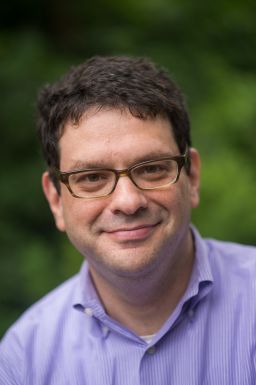Editor’s Note: Rabbi Shai Held is president and dean of the Hadar Institute, a center for traditional, egalitarian Jewish learning in New York City. The views expressed in this commentary are his own. View more opinion on CNN.
Another black man lies dead, a consequence of an officer of the law’s excessive use of force.
As his life ebbed away, George Floyd uttered the same desperate words as Eric Garner had almost six years ago: “I can’t breathe.” Neither Garner’s plea nor Floyd’s appeared to have any effect on the actions of officers involved. And so we return to an all-too-familiar scene: a black man accused of committing a petty crime rendered powerless and dying in the street.

Questions of racial justice are often complex. Good people can struggle with how to redress past injustices without perpetuating new ones. They can have doubts about whether a given policy will alleviate a social problem or exacerbate it.
But questions of racial justice often begin, or ought to, with something basic and elemental: Do we believe – I mean truly believe – that all human beings are equal? Do we know – in our minds, in our hearts and in our guts – that a black child is as infinitely valuable as a white child; that a black adolescent has the right to the same opportunities as a white adolescent; that a black man under arrest deserves exactly the same treatment as a white man?
As a rabbi, I experience these questions in theological terms. In the ancient world, the king of a civilization was understood as an “image” of the god that civilization worshipped. Put simply, it was the king, and the king alone, who was seen as an image of God.
The Hebrew Bible turns that idea on its head. It is not merely the king who is created in God’s image. Genesis 1:27 teaches that it is every human being, without exception. In other words, we are all royalty. Every last one of us is a king or queen.
According to a rabbinic teaching from the Midrash on Psalms, when a person makes their way in the world, a retinue of angels walks before them and proclaims: “Make way for an icon of the Blessed Holy One.”
Imagine really taking this to heart: Every human being everywhere, regardless of race, gender or sexual orientation, is a king, a visual representation of God. George Floyd, who died with a police officer’s knee on his neck after close to nine minutes, was a king. Angels walked before him to affirm and protect his honor. And now he lies dead for no remotely justifiable reason.
Faced with such a scene, we can well imagine what the God of Genesis might say. Addressing Cain, human history’s first murderer, God thunders in Genesis 4:10: “What have you done? Listen! Your brother’s blood cries out to me from the ground.”
There are people who spend their lives lamenting what they perceive as the moral decay of Western civilization. They seek a renewal of virtue and a deepened sense of personal responsibility. But far too many of them are silent where racism and bigotry are concerned.
In the name of Eric Garner, and George Floyd, and countless others, let’s embrace moral responsibility and ask: Confronted with racism and bigotry, will we, each of us, remain silent or stand up for goodness and justice?
Rabbi Abraham Ibn Ezra, a medieval rabbinic sage, teaches that, from a religious perspective, one who witnesses an act of oppression and remains silent is morally equivalent to the one who commits the act in the first place; there are no innocent bystanders.
Will we live our lives in ways that reflect an unshakeable commitment to the dignity and worth of all human beings without exception? Will we work to build a society that reflects universal dignity and worth?
There are concrete steps we could take right away. We could insist that all police departments be trained in how to deescalate conflict and help officers learn to confront their own biases, whether explicit and implicit. We could acknowledge that voter suppression is a form of dehumanization and refuse to tolerate it. We could insist that underfunded, under-resourced public schools are an abomination – and a stain upon what ought to be our national ideals. And we could proclaim that bigots and racists have no place in public life, let alone public office.
This is a bleak time in America, and it is easy to lose hope. But the great religious traditions forbid us from losing hope – with so much suffering and injustice all around us, hopelessness is a privilege to which we are not entitled.
But how to have hope? Remember this: Hope involves commitment. If I would rather see a society in which black people were not killed on the street, then I am merely wishing; if I commit to working toward building such a society, then and only then am I truly hoping.
In the name of Eric Garner, George Floyd, and countless others, let’s not wish – let’s hope. And, because this is what hope requires, let’s get to work.


